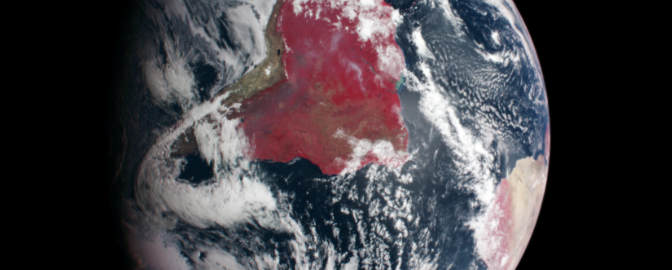The Planetary Society reissues urgent call to reject disastrous budget proposal for NASA
“This budget is a retreat, a narrowing of ambition.”
For Immediate Release
May 30, 2025
Contact
Danielle Gunn
Email: [email protected]
Phone: +1-626-793-5100
The Planetary Society reissues urgent call to reject disastrous budget proposal for NASA
“This budget is a retreat, a narrowing of ambition.”
Pasadena, CA (May 30, 2025) —The White House’s FY 2026 congressional budget justification for NASA, released today, is an extinction-level event for the space agency’s most productive, successful, and broadly supported activity: science. It will damage the agency’s highly skilled workforce, abandon national priorities, and gut STEM education and outreach. These consequences are not limited to a handful of space science centers — NASA science is everywhere, positively impacting 87% of congressional districts in all 50 states.
And even though this budget is dead on arrival in Congress, we must note the following:
1) This budget is a retreat, a narrowing of ambition. This request represents the smallest NASA budget since FY 1961 — a level enacted before the first American had launched into space. Unlike that era of growth, high ambition, and bold vision, this budget revels in the opposite: what the nation cannot do. It claims we cannot lead the world in deep space exploration, we cannot work with our allies, we cannot invest in our scientific and industrial workforce. We resolutely reject this disparaging view of our nation. NASA is a national symbol of what we can do.
2) This budget is not about efficiency. This proposal wastes billions in prior taxpayer investment and slams the brakes on future exploration. It terminates healthy and productive projects like OSIRIS-APEX, an invaluable planetary defense mission, as well as missions making discoveries about the outer solar system, like Juno and New Horizons. In total, this budget aims to cancel 41 science projects — fully a third of NASA’s science portfolio. These are unique projects that would require billions of new spending to replace. The radical and rapid gutting of NASA’s resources will lead to reduced productivity, threaten institutional knowledge, and create economic uncertainty in the American industrial base.
3) This budget is not the product of strategic policymaking. By all accounts, neither NASA nor its Administrator-nominee was consulted by the Office of Management & Budget while drafting this budget. And absent a National Space Council, it is unclear which enduring national interests were considered in this budget. It is our opinion that this proposal is nothing more than the personal agenda of an unelected bureaucrat masquerading as national policy.
4) This budget undermines the President’s agenda for space leadership.
President Trump has stated he is “committed to ensuring that America continues to lead the way in fueling the pursuit of space discovery and exploration.” This budget does the exact opposite: laying waste to the nation’s ability to lead in scientific discovery, destroying the economic powerhouse that is NASA, and abandoning allies around the globe.
The Planetary Society believes that a great nation deserves a great space program, one that reflects our national ideals and serves the public interest. This proposal doesn’t merely fall short — it actively rejects that promise, undermining the rare opportunity NASA provides to build unity at home and collaboration abroad through American leadership.
To show the universal support for NASA and its mission of scientific discovery, The Planetary Society is leading a global petition to Congress. Anyone can add their name at planet.ly/petition.
Press Resources
Casey Dreier, chief of space policy, is available for interviews. Please arrange with Danielle Gunn, chief communications officer, at [email protected]
New Resource: NASA Science Spending Across the U.S.
A comprehensive dashboard displaying the average annual NASA Science Mission Directorate contract obligations by congressional district and state for fiscal years 2022-2024. The data includes research grants, contracts, and cooperative agreements supporting NASA’s science programs including Earth Science, Planetary Science, Astrophysics, and Heliophysics.

Never has a White House budget proposed this scale of budget cut, this quickly. Should it be implemented, NASA's budget would fall to its lowest level since Alan Shepard became the first American in space.
Download Options
No science is spared. Each of NASA's four major science divisions is facing a draconian cut to its budget, with some reaching historical lows. Values are adjusted for inflation.
Download Options
Each block in this chart represents one NASA's-worth of expenditures by the United States: $25 billion. In 2024, the federal government spent $6.8 trillion—equal to 272 NASAs.
Download Options
The proposed FY 2026 budget would cancel 19 NASA science missions that are currently active, healthy, and producing invaluable science. These represent a cumulative investment of over $12 billion and years of work to design and build. These are irreplaceable assets.
Download OptionsAbout The Planetary Society
With a global community of more than 2 million space enthusiasts, The Planetary Society is the world’s largest and most influential space advocacy organization. Founded in 1980 by Carl Sagan, Bruce Murray, and Louis Friedman and today led by CEO Bill Nye, we empower the public to take a meaningful role in advancing space exploration through advocacy, education outreach, scientific innovation, and global collaboration. Together with our members and supporters, we’re on a mission to explore worlds, find life off Earth, and protect our planet from dangerous asteroids. To learn more, visit www.planetary.org.
###


 Explore Worlds
Explore Worlds Find Life
Find Life Defend Earth
Defend Earth

